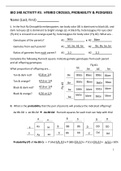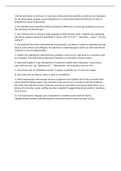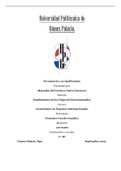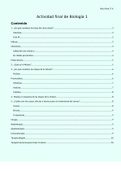The Interplay Between Theory and Method
The aim of organizational and management research is to speculate, discover, and document, as well as
to provisionally order, explain, and predict, (presumably) observable social processes and structures that
characterize behaviour in and of organizations. In this long march, theory and method surely matter, for
they are the tools with which we build both our representations and understandings of organizational
life and our reputations. Theory and method, while generating much descriptive, prescriptive, and
critical literature, are often treated as conceptually independent.
It is our stand that theory and method are—or should be—highly interrelated in practice. Theories
without methodological implications are likely to be little more than idle speculation with minimal
empirical import. And methods without theoretical substance can be sterile, representing technical
sophistication in isolation.
the interplay of theory and data is not problematic but follows a prescribed—almost magical—
sequence. In conventional form, problems are identified that are of interest to a identifiable research
community (perhaps more than one), specific research questions or hypotheses are posed that rest on
the theoretical resources those in the research community possess (or seek), appropriate research
strategies based on either or both deductive or inductive logic are then spelled out, qualitative or
quantitative measures are chosen and put to work, data compilation and analysis then follow, and, with
pluck and luck, plausible (or verifiable) inferences and conclusions result.
Flexibility in the connections within and between the conceptual (ideas) and empirical (data) planes and
allowing for a logic of discovery rather than only a logic of validation is seemingly a prerequisite if
research is seen as a cognitive process. The logics, schools, and paradigms that populate our research
landscape are many and varied, and they have substantial impact on both theory and method.
What this Special Topic Forum (article) brings to the table is a rather broad consideration of just how
these fundamental tools of varied research trades—theory and method—interact across a range of
conceptual and empirical domains, both narrow and broad. Theory can drive method through its level of
analysis, its stage of articulation, the types of constructs it proposes, and its descriptive or prescriptive
nature. Method can help to develop and enhance theory development through the analysis of
configurations, simulation modelling, and analysis of surprising or unexpected data to generate new
theoretical insights.
Theorizing is how we think about the relationships among the elements in the world that occupy our
research attention. Yet the social world is complex and full of random noise that may obscure the
processes we are interested in. The methods we use to perceive the social world are imperfect as well. If
we pay too much attention to available or potentially available data, we are trapped by operations, and
theorizing is stifled. If we pay no attention to data, our theorizing will be rather too remote and will
occur all on the conceptual plane. Research methods play a central role here because they must be
designed so that they sufficiently respect both the primacy of theory and the primacy of evidence.
The aim of organizational and management research is to speculate, discover, and document, as well as
to provisionally order, explain, and predict, (presumably) observable social processes and structures that
characterize behaviour in and of organizations. In this long march, theory and method surely matter, for
they are the tools with which we build both our representations and understandings of organizational
life and our reputations. Theory and method, while generating much descriptive, prescriptive, and
critical literature, are often treated as conceptually independent.
It is our stand that theory and method are—or should be—highly interrelated in practice. Theories
without methodological implications are likely to be little more than idle speculation with minimal
empirical import. And methods without theoretical substance can be sterile, representing technical
sophistication in isolation.
the interplay of theory and data is not problematic but follows a prescribed—almost magical—
sequence. In conventional form, problems are identified that are of interest to a identifiable research
community (perhaps more than one), specific research questions or hypotheses are posed that rest on
the theoretical resources those in the research community possess (or seek), appropriate research
strategies based on either or both deductive or inductive logic are then spelled out, qualitative or
quantitative measures are chosen and put to work, data compilation and analysis then follow, and, with
pluck and luck, plausible (or verifiable) inferences and conclusions result.
Flexibility in the connections within and between the conceptual (ideas) and empirical (data) planes and
allowing for a logic of discovery rather than only a logic of validation is seemingly a prerequisite if
research is seen as a cognitive process. The logics, schools, and paradigms that populate our research
landscape are many and varied, and they have substantial impact on both theory and method.
What this Special Topic Forum (article) brings to the table is a rather broad consideration of just how
these fundamental tools of varied research trades—theory and method—interact across a range of
conceptual and empirical domains, both narrow and broad. Theory can drive method through its level of
analysis, its stage of articulation, the types of constructs it proposes, and its descriptive or prescriptive
nature. Method can help to develop and enhance theory development through the analysis of
configurations, simulation modelling, and analysis of surprising or unexpected data to generate new
theoretical insights.
Theorizing is how we think about the relationships among the elements in the world that occupy our
research attention. Yet the social world is complex and full of random noise that may obscure the
processes we are interested in. The methods we use to perceive the social world are imperfect as well. If
we pay too much attention to available or potentially available data, we are trapped by operations, and
theorizing is stifled. If we pay no attention to data, our theorizing will be rather too remote and will
occur all on the conceptual plane. Research methods play a central role here because they must be
designed so that they sufficiently respect both the primacy of theory and the primacy of evidence.












